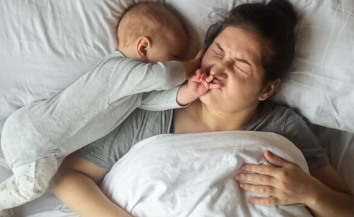You may also like…
"Adequate sleep is essential for brain development, as it allows the brain to prune unnecessary connections and strengthen important ones."
Sleep and brain development:
How does caffeine intake affect child’s development
Sleep develops rapidly during the initial phase of a child’s growth. Insufficient sleep, poor sleep quality and irregular sleep cycles may affect children’s physical health, cognitive capacity and socioemotional processes. Some medical conditions that contribute to poor sleep include obstructive sleep apnea, periodic limb movements, excessive movement when sleeping and acid reflux. (Tham EK S. N., 2017)
Pre-teens who sleep less than nine hours daily have differences in brain structure and excessive problems with mood and thinking compared to those who got enough sleep. It has for very long been emphasized that getting enough sleep during childhood can improve the development of a child’s brain.
It is very important that children aged 6 to 12 years should aim at at least 9 hours of sleep each day. Research proves that children who sleep more than 9 hours a day, had less behavioral problems at the start of the day compared to children who got insufficient sleep. Brain imaging of both these groups also presented differences in brain structure and function. This suggests that sleep has specific brain changes on learning and behavior. (Contie, 2022)
Caffeine exposure may have a negative impact on your child’s cognitive functioning. In the present day and age, many children ingest drinks that may contain an average of 37 mg caffeine per day. Children have a lower tolerance for caffeine than adults, this makes the availability to them of drinks such as soda and cola particularly concerning. Research presents data that supports an argument of caffeine consumption during childhood a negative impact on the child’s future cognitive function (William Ross Perlman, 2021). A study conducted by National University of Singapore demonstrated that children with a lower socioeconomic status showed higher caffeine consumption and worse cognitive performance on measures that included; (vocabulary comprehension, reading decoding, inhibitory control, working memory, episodic memory, cognitive flexibility, processing speed). Another association that was found through this study showed more sleep disturbances linked with greater caffeine intake and worse performance on four measures.







